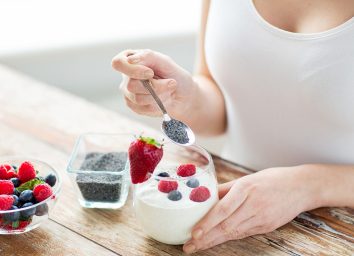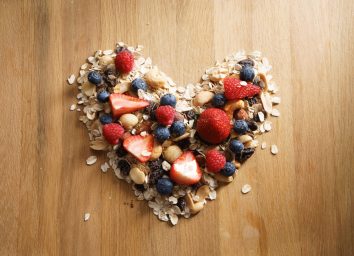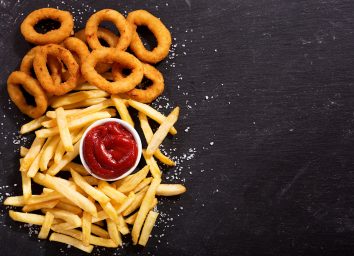12 Things You Should Never Drink Before a Workout
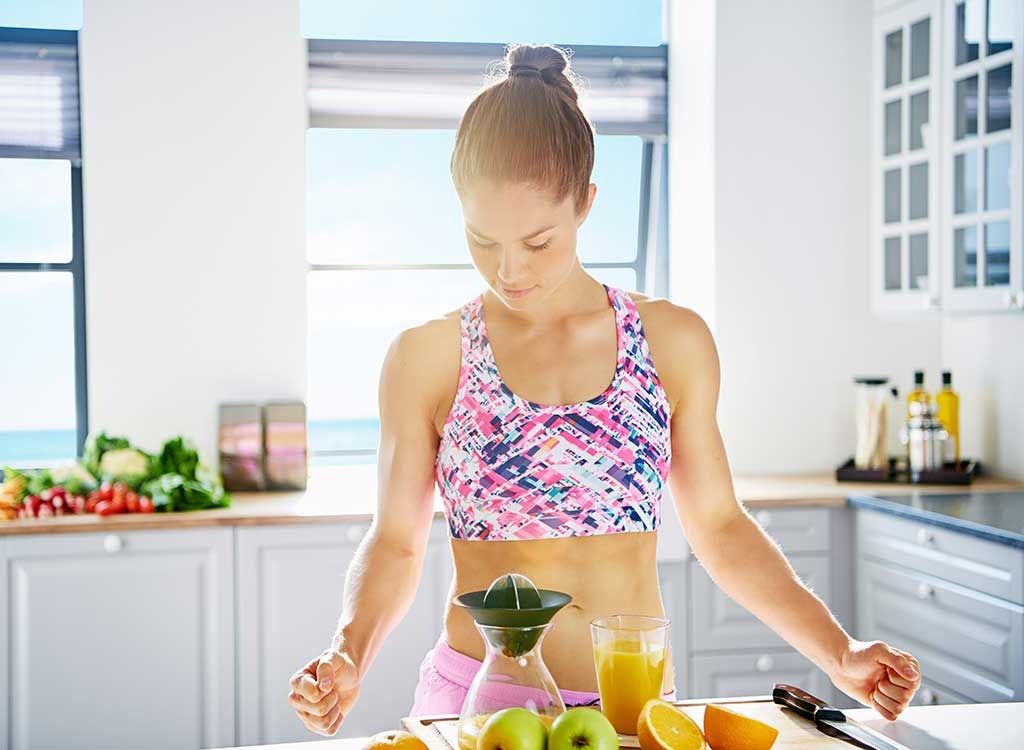
It’s easy to get caught up in the dos and don’ts of your pre-workout food choices that you completely forget to pay attention to what you’re drinking. But as you’ll see, the beverages you consume can make or break your workout. The negative effects of your drinking choices can vary, from bloating and cramping to sudden energy crashes—or worse.
So, if you want your workouts to be both enjoyable and effective, watch what you drink. Avoid these 12 beverages to get through your workout cramp-free and full of energy. After all, you don’t really want to spend half your run hunting for the porta-potty, do you? And while you’re at it, read up on 19 Ways to Burn 100 Calories Without a Gym.
Fatty Shakes and Smoothies
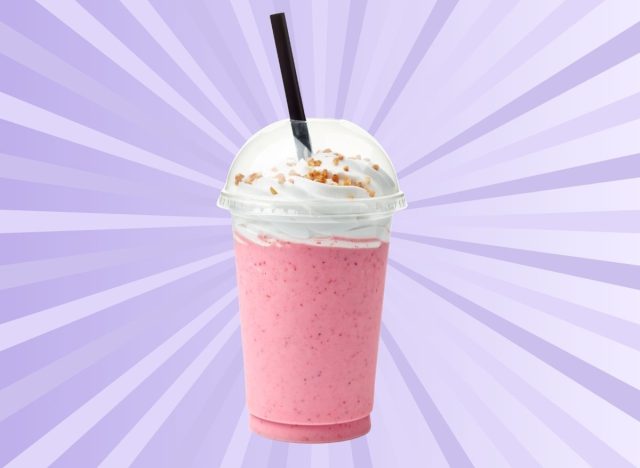
Nuts, seeds and nut butters make yummy additions to any shake or smoothie—just not before your workout. Fat moves slowly through the GI tract, which can lead to stomach troubles like cramping during exercise, says Erin Shyong, RD, MPH, CDE, a registered dietitian at Laura Cipullo’s L’ifestyle Lounge in Closter, New Jersey. To keep your gut happy, steer clear of fat-filled shakes and smoothies one to two hours before your workout. On the other hand, a fatty smoothie would be a great post-workout option. “It can decrease inflammation and in general it’s just part of a healthy diet,” Shyong explains.
Juice with Pulp

In general, juice with pulp is the way to go. After all, the pulp is where you’ll find a hearty dose of good-for-you fiber, which can lower your risk of diabetes and heart disease while helping you maintain a healthy weight, according to the Mayo Clinic. However, the high-fiber content is also what makes juice with pulp a terrible pre-workout option. Fiber is slow to digest, which can cause cramping, constipation, or diarrhea when consumed before your workout. And because it’s slow to absorb, fiber limits the amount of sugar and carbs available to your muscles during your workout, Shyong says. So it’s best to save the juice for another time and avoid drinking it one to two hours before exercise. Your tummy will thank you, trust us!
Alcohol
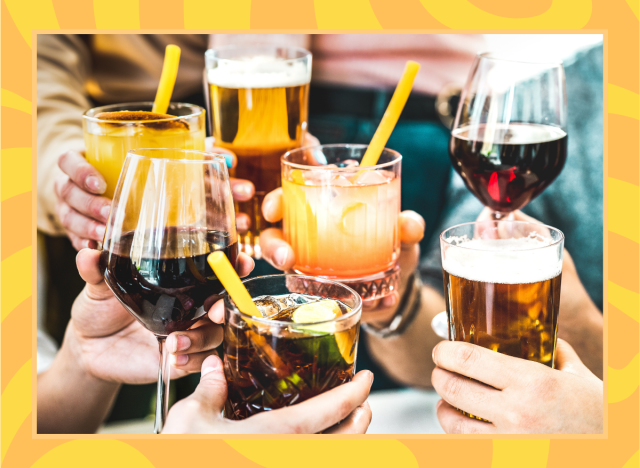
Alcohol is not only dehydrating, but it also limits the amount of oxygenated blood that goes to your muscles—a bad combo for your workout. When you can’t get as much oxygenated blood to your muscles, they won’t have the gas they need to work, and your exercise performance will suffer, Shyong says. Not to mention, alcohol slows reaction time and impairs balance, thereby increasing your risk of accident or injury. “Save the drinks for a post-workout reward,” says Stephanie Mansour, weight-loss and lifestyle coach and owner of Step It Up with Steph.
Sparkling Water
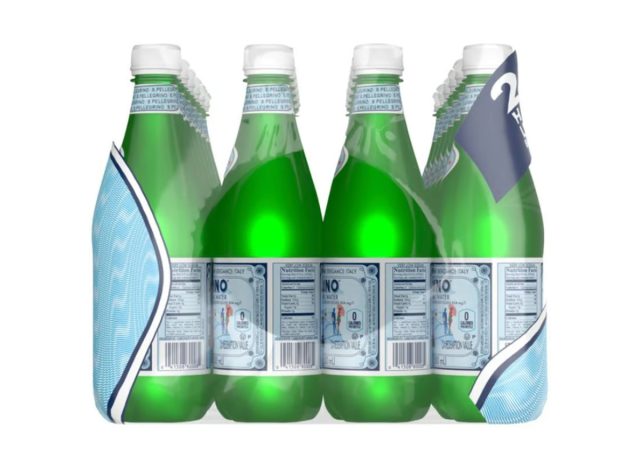
Cracking open your favorite can of LaCroix isn’t the best choice before you start your HIIT workout. Flavored, carbonated water tastes great, but those bubbles can cause gas and bloat, “which can weigh you down during a workout and make things very uncomfortable,” Mansour says. Skip the fizzy water and stick to plain old H2O for pre-workout hydration.
Sugar-Free Shakes
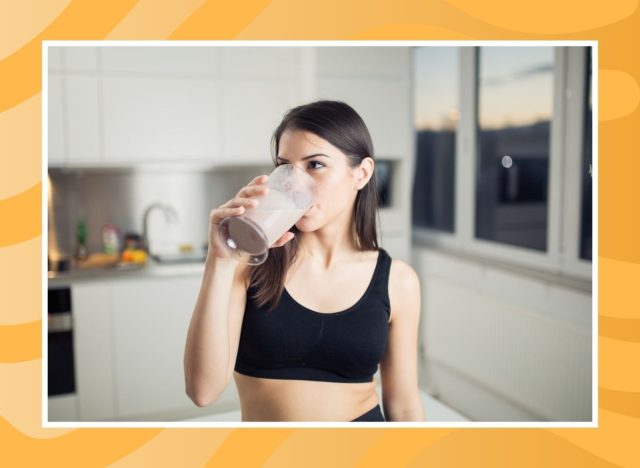
Sugar-free shakes and drinks get their sweet flavor from low-calorie sugar substitutes known as sugar alcohols. According to Shyong, while sugar alcohols are made from actual sugar, their molecular structure gets changed so they aren’t absorbed by your intestines. This makes them difficult to digest, causing major gas, bloating, cramping and diarrhea, and “if you’re trying to work out, that’s the last thing you would want,” Shyong says.
Look out for drinks labeled “light,” “diet,” or “diabetic-friendly.” Check the ingredient list and pass if you see any of the following common sugar alcohols: sorbitol, maltitol, mannitol, xylitol and erythritol. When in doubt, remember: “Any sugar substitute that ends in -ol is a sugar alcohol,” Shyong says.
Bottled Juice
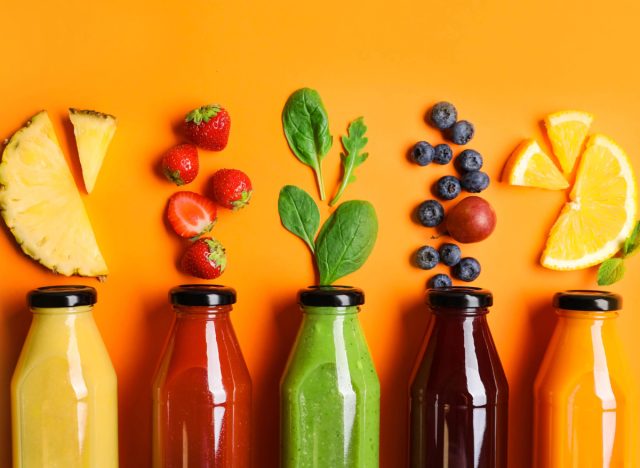
Unlike fresh-squeezed juice, bottled juices often contain less than 10 percent of actual fruit juice and offer little nutritional value. Instead, they fill you up with high doses of sugar, which can land you on the sidelines with a stomach ache, says Christine Palumbo, a Chicago-based registered dietitian. What’s more, while juice boxes and juice drinks can give you a burst of energy at first, this sugar high will soon be followed by a sharp decline midway through your workout. Instead, squeeze fresh lemon or orange into your water bottle for natural flavor. Want more advice on how to cut back on sugar? Grab a copy of The 14-Day No Sugar Diet to get healthy swaps, restaurant guides, meal prep tips, and much more.
Soda
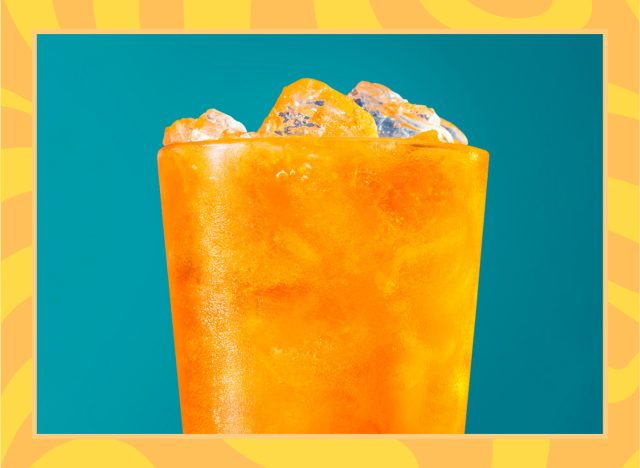
Soda pairs great with burgers, not workouts. See, soda contains refined sugar — not the varied carb sources your muscles need for exercise, according to Palumbo. You may be better off reaching for a sports drink, which typically offers a greater variety of carbohydrates. There are some drawbacks to sports drinks, however. (More on this later.)
Flavored Coffee Drinks
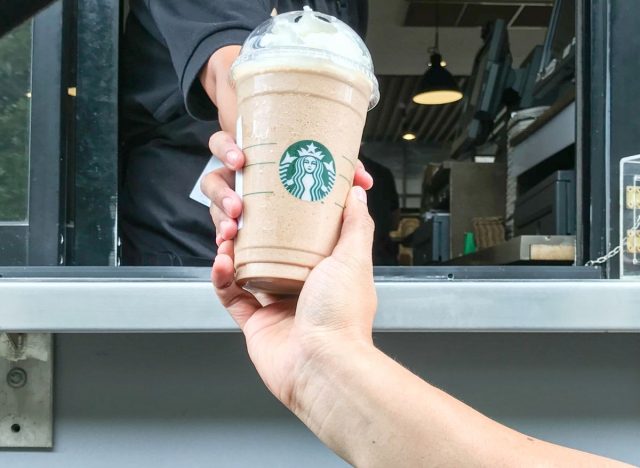
Save your Starbucks fix for a cheat day or an after-workout treat. Flavored coffee drinks often contain fat and sugar, which put you at risk of gastrointestinal issues if consumed pre-workout, Palumbo says. What’s more, fat may slow you down — the last thing you want for your workout!
Milk
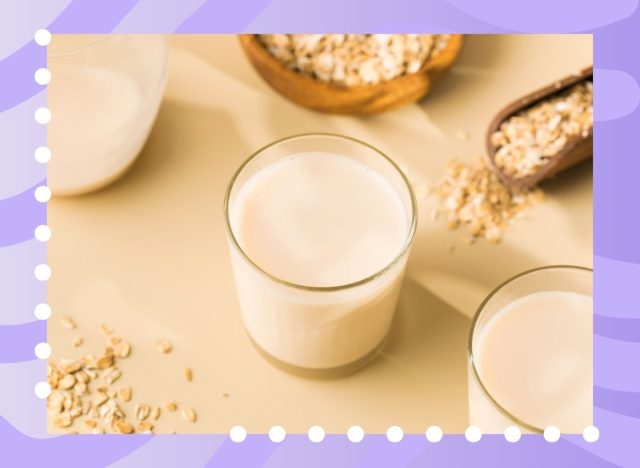
Yes, milk offers a great combo of protein, fat, and carbs. However, it takes a long time to digest and is best left for your post-workout smoothie. If you plan on having a pre-workout smoothie or shake, opt for almond or coconut milk and whey- or plant-based protein powders, Mansour says.
Sports Drinks
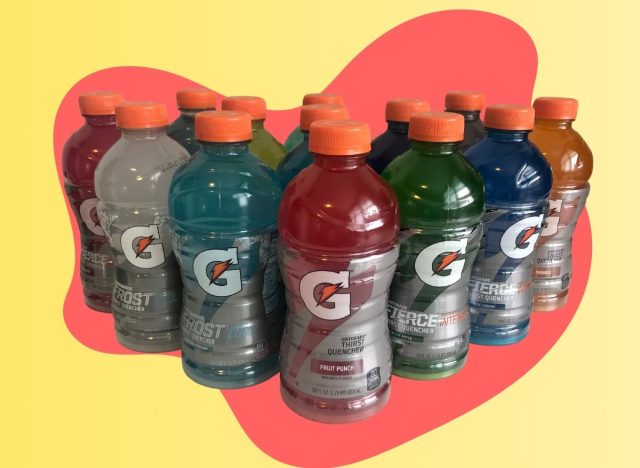
Gulping Gatorade before (or during) your workout sounds like a no-brainer. After all, sports drinks are supposed to keep you hydrated and your muscles ready to work. The trouble is, many sports drinks have a high concentration of sugar, which can wreak havoc on your digestive system in the form of cramping and diarrhea if you’re sensitive or you down too much in a short period of time.
You can still use sports drinks pre-workout, but Shyong recommends pulling back on the serving size. “Instead of a full bottle of Gatorade, do half a bottle and then drink water,” she says. Research in the Journal of Physiology also suggests you can reap the performance-boosting effects of your sports drink by swishing some around your mouth before spitting it out. If you do choose to swish, just remember that you’ll still need to drink plenty of water to stay hydrated.
Coffee

In general, research shows that pre-workout caffeine is beneficial. A 2014 study in the Journal of Applied Physiology, for example, reveals that caffeine can make your workout feel easier and more enjoyable. However, some people are particularly sensitive to the effects of caffeine and find that it causes them to urinate during their workout, Shyong says. You may also experience migraines or upset stomach if you’re sensitive or drink too much caffeine. If you decide to try coffee pre-workout, pay attention to how your body reacts, especially if you don’t usually drink coffee. The Mayo Clinic recommends limiting caffeine consumption to 400 milligrams, or approximately four cups of coffee per day.
Energy Drinks
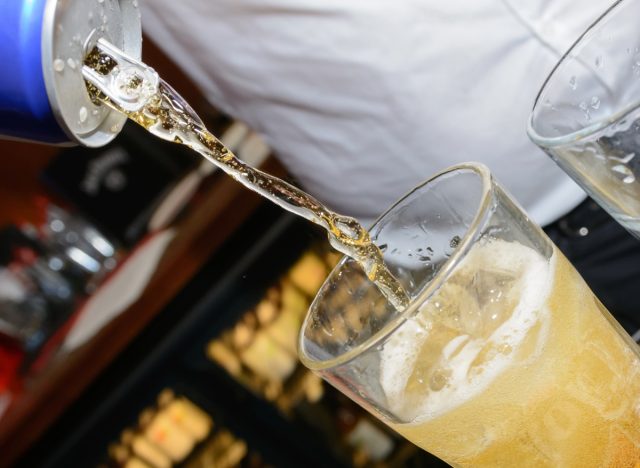
According to Palumbo, energy drinks (think: Red Bull, Monster) may give you a short-term boost. But eventually, you could get sidelined by cramping, headaches, and dehydration thanks to the caffeine content. In addition, some energy drinks also contain guarana, an ingredient derived from a plant that’s been shown to have more caffeine than coffee (up to 3.6 to 5.8 percent caffeine by weight vs. two percent in coffee).
